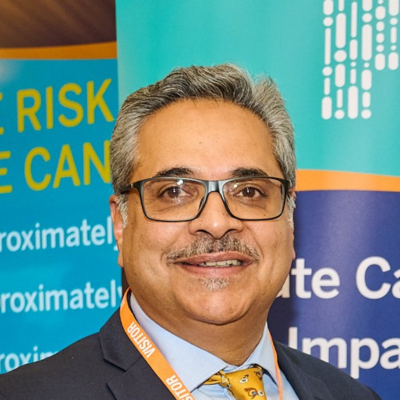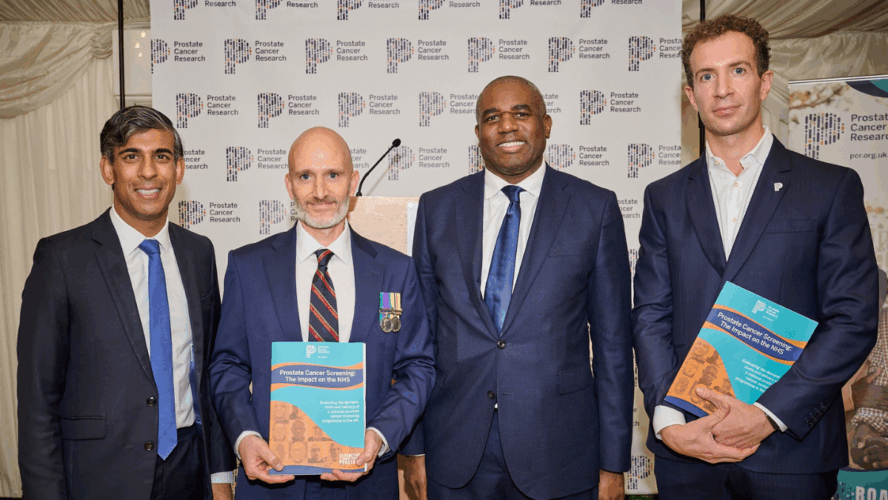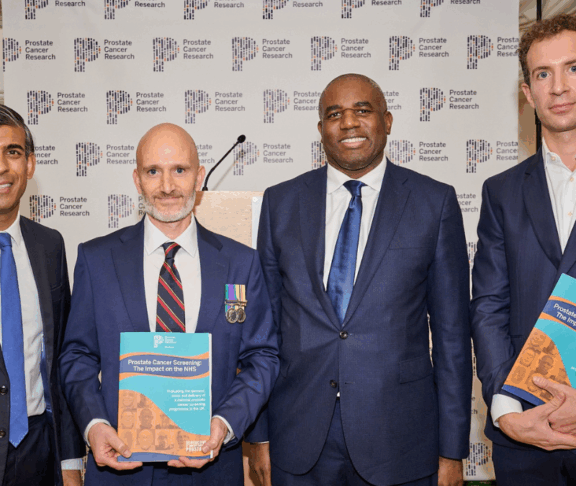
Sanjiv Kanwar
Prostate Cancer Patient
A prostate cancer patient hopes to educate and empower people of Asian heritage to recognise the signs and symptoms of prostate cancer and seek early assessment.
“In many Asian communities, there exists a cultural taboo around men’s health – especially if it involves discussing anything below the waistline, a ‘Bury your head in the sand’ mentality,” explains Sanjiv Kanwar, haematologist and prostate cancer patient.
Prostate cancer cultural barriers
While approximately 150 new cases of prostate cancer are being diagnosed in the UK daily, men of Asian heritage may be less likely to seek medical advice or screening due to associated stigma, lack of awareness and reluctance to discuss health concerns – especially those thought to relate to sexual organs. This cultural barrier can lead to later diagnosis and poorer clinical outcomes.
“There’s a common misconception that prostate cancer is an ‘elderly white man’s disease’, but this is not the case. We are seeing men of all backgrounds, as young as 40, being diagnosed with advanced cancer.”
The need for national screening
Kanwar has first-hand experience of the prostate cancer journey and is now championing for improvements in prostate cancer awareness. With a family history and a medical background, Kanwar was able to identify the signs and take early action, but he recognises the difficulties many others face in following suit. He says, “Prostate cancer can often be treated successfully if caught early. Without a national screening programme, many men, especially those in higher-risk groups or from minority communities, may not seek help until it’s too late.”
“If the NHS needs more resources to support screening, then that’s what must happen,” implores Kanwar, who calls for increased access to prostate-specific antigen (PSA) testing from the age of 40 for men known to be at higher risk, as an indicator of prostate health.
Healthcare professionals diagnose and treat; pharmaceutical
companies develop the drugs; but the patient is at the heart of it all.
Advocacy and awareness
Working alongside Accord Healthcare, Kanwar was part of the patient steering committee, which helped to shape the design of the ‘Pro-state of mind’ campaign, empowering patients to get educated, get screened and get involved.
“Reflecting on the prostate cancer journey takes understanding from different perspectives,” says Kanwar. “Healthcare professionals diagnose and treat; pharmaceutical companies develop the drugs; but the patient is at the heart of it all.”
Accord offers a range of resources, including informative videos, podcasts and doctor discussion guides, designed to improve access to prostate cancer information to enhance screening rates, particularly for those who feel hesitant to seek help in person. “Early awareness and screening are critical,” concludes Kanwar. “The goal is simple: empower men to get educated regarding prostate health, get screened and get involved in their own healthcare.



